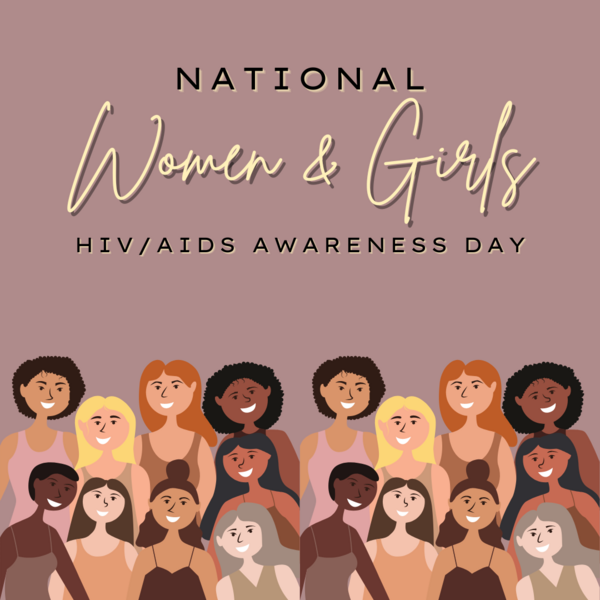
National Women and Girls HIV/AIDS Awareness Day: Black Women and PrEP
Today, March 10, is National Women and Girls HIV/AIDS Awareness Day (NWGHAAD). This year’s theme, “Prevention and Testing at Every Age. Care and Treatment at Every Stage.”, highlights the importance of women and girls having access to quality and affordable HIV prevention, care, and treatment resources and services. In the U.S., approximately 23% of people living with HIV (PLWH) are women and as of 2021, 19% of new diagnoses were women.
Black women are disproportionately impacted by HIV. In 2021, Black women and girls over 13 years old comprised 13% of women and girls in the U.S., but HIV transmission among this group accounted for 54% of diagnoses. Access to HIV prevention and care is crucial among this population, however, Black women face many barriers when trying to access these resources. Medical providers and public health experts explain that stigma and racism are major factors that contribute to the low uptake of HIV prevention, such as pre-exposure prophylaxis (PrEP), among Black women. PrEP is highly effective in preventing HIV and Black women, one of the groups that would benefit from it most, are not able to access it.
NASTAD is dedicated to advancing health equity, racial equity, and eliminating HIV stigma among Black women. NASTAD’s HIV prevention team has prioritized spotlighting work that provides health care and public health systems with strategies to increase PrEP uptake among Black women. NASTAD’s “Black Women Researchers and PrEP Webinar Series” and “Social Determinants of Health: PrEP and Black Women LinkedIn Live” highlight the research and programs that are addressing PrEP utilization among Black women.
NASTAD’s “Black Women Researchers and PrEP Webinar Series”, developed in partnership with the Atlanta Black Women Leaders on PrEP, provided a platform for Black women to share their research with a broader audience and discuss ways the public health community can provide support for their efforts. The series presented a variety of research projects and campaigns that aim to increase uptake of PrEP among Black women.
Part 1 of NASTAD’s Black Women Researchers and PrEP series discussed 1) the ShePrEP Study, which examines the influence of the messaging and the messenger associated with PrEP uptake among Black women; 2) the EMPOW-HER Project, which educates medical providers on women-controlled HIV prevention to expand reach to Black women in Atlanta; and 3) The Danger of a Single Story, which had a goal to include Black college women in conversations about HIV/AIDS and PrEP. Part 2 of the series includes 1) An Exploration of PrEP among Black Women Attending an HBCU in the Northeastern United States, which examines the unmet need of PrEP among Black communities and the role of Historically Black Colleges and Universities (HBCUs) as access points for PrEP; and 2) PrEP Equity for Black Women!: The Queen Savvy Lab Says..., which had a goal to develop, implement, and test intervention studies that employ innovative modalities intended to promote behavioral change and facilitate optimal sexual, reproductive, and maternal health outcomes. This series was successful in exploring the many avenues that can be used to reach Black women, engage them in PrEP, and include them in the conversation about HIV prevention.
Rodderick Sheppard, Manager on NASTAD's Prevention team, hosted a LinkedIn Live “Social Determinants of Health: PrEP and Black Women”, which discussed PrEP and Black women with Dr. Oni Blackstock. In the session, they discussed the barriers Black women face in accessing PrEP and strategies to increase access to PrEP among them . Dr. Blackstock shared ways to market and promote sexual health and PrEP among Black women. They also identified the need to recruit more Black women into PrEP services and strategies to accomplish this. Additionally, they explored how medical provider buy-in is a crucial tool in increasing PrEP uptake among Black women. It is imperative that medical providers are educated about the benefits of PrEP and have the knowledge to educate their patients and offer it to them. Rodderick and Dr. Blackstock also examined ways to integrate PrEP into primary care and reproductive care services. The session presents various strategies that can be utilized to uplift Black women and meet their unmet need for quality sexual health services and resources.
This NWGHAAD, NASTAD continues to uplift, advance, and prioritize the health and dignity of Black women. It is essential to address the health disparities that are present among Black women and implement strategies to end the HIV epidemic in this community.
View related NASTAD resources below: